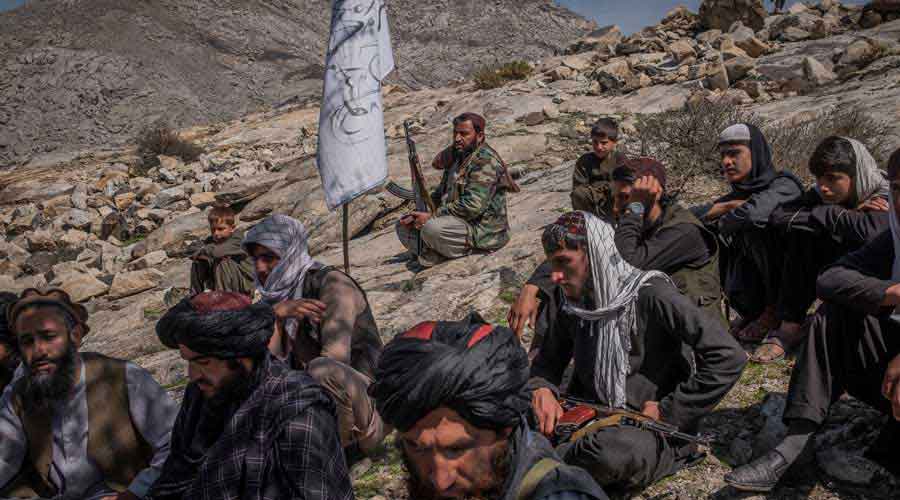Desperate people fleeing Afghanistan face dangerous crowds, vanishingly rare plane seats and Taliban fighters issuing beatings. But those lucky enough to leave can be consumed by feelings of despair for the country they left behind.
As thousands of Afghans scramble to leave, Samiullah Mahdi, a lecturer at Kabul University, said the attempted exodus was spurring a sense of shock, fear and alienation for people who have fled the Taliban takeover.
“Afghanistan is not the same anymore,” said Mahdi, who worked as a journalist for Tolo News, Afghanistan’s popular news outlet. “We are not the same anymore.”
He managed to flee a few days before the collapse of Kabul and asked that his location not be revealed because he feared for his safety. Now, he said, he was overcome by the sense of becoming a permanent refugee.
“We have no home to return to,” he said.
In recent days, the situation at the airport has grown increasingly dangerous for people trying to flee the Taliban. The large crowds have become unruly and in some cases deadly. Mahdi said he had heard accounts of people trying to escape. He said a colleague who suffered a broken arm after being beaten by Taliban fighters had not been given medical attention until he was evacuated.
The days since Kabul’s collapse have felt more like centuries, he said. A friend left in Kabul, where many people have remained cloistered inside for fear of Taliban retribution, described it to him as “a city of ghosts.”
“Even during the light of the day you feel like it’s dark. That kind of depression is governing the city,” Mr. Mahdi said. “People fear that the international community has given up on Afghanistan and they will one day recognize this regime change in the country.”
There was also an overwhelming sense, he said, that the advances of the past two decades, the liberalization of the press and the flourishing of women’s rights now threatened to unravel. “You have tears in your eyes, and you cannot hold it together,” he said.
“It’s grieving, it’s anger, it’s hopelessness.”
When the Taliban ruled Afghanistan in the past, they imposed a harsh version of Shariah law, barring women from working outside the home or leaving the house without a male guardian, eliminating schooling for girls and publicly flogging people who violated the group’s morality code.
Mr. Mahdi said that the Taliban were already displaying their past tendencies and had asked private and public universities to segregate people by gender, using only female lecturers and professors for female students. But he said universities were struggling to find enough instructors, and he feared that they would be asked to abolish classes for women.
“It’s a lot of pain when you feel like everything that you tried and tried to build and love to work on is taken away from you,” he said.
New York Times News Service











